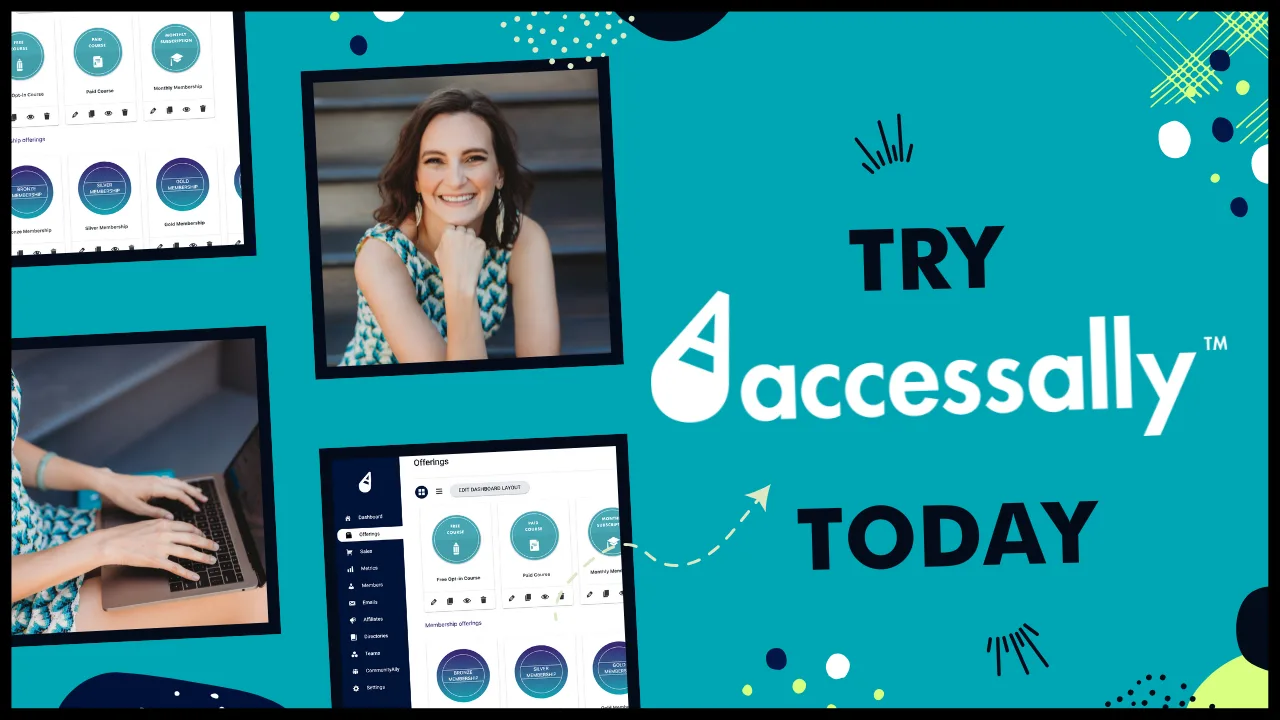Introduction and Platform Overview
When it comes to building your online presence, choosing between WordPress and Wix is like deciding between a custom-built house and a move-in-ready apartment. Here’s the thing: both platforms can create beautiful websites, but they serve different needs and come with distinct approaches to web development.
WordPress started as a blogging platform in 2003 and has evolved into the world’s most popular content management system, powering over 43% of all websites. It’s an open-source platform that offers unlimited customization potential through its vast ecosystem of themes and plugins. Think of WordPress as a blank canvas where you have complete creative control, but you’ll need to learn how to use the tools and maintain your creation.
Wix, on the other hand, emerged in 2006 as a user-friendly website builder focused on simplicity and visual design. It’s a hosted solution that provides everything you need in one package – hosting, security, and design tools. The platform uses a drag-and-drop interface that makes website creation accessible to anyone, regardless of technical expertise.
When comparing features, WordPress offers deeper functionality and flexibility but requires more technical knowledge to set up and maintain. You’ll need to handle hosting, security updates, and backups yourself (or hire someone to do it). Wix simplifies these technical aspects by managing them for you, but this convenience comes with limitations in terms of customization and data ownership.
| Feature | Benefit | Use Case |
|---|---|---|
| Drip Content | Increases engagement | Course progression control |
| Quiz & Assessments | Validates learning | Student progress tracking |
| Certificates | Motivates completion | Professional development |
| Community Access | Builds loyalty | Student interaction |
Pricing structures differ significantly between the platforms. WordPress is free to download, but you’ll need to pay for hosting, domain registration, and potentially premium themes and plugins. These costs can range from $10 to several hundred dollars per month, depending on your needs. Wix offers tiered pricing plans starting at around $16 monthly, including hosting and basic features, with premium plans reaching up to $59 per month for advanced e-commerce capabilities.
The learning curve is another crucial consideration. WordPress typically requires several weeks to months to become proficient, especially if you’re planning to make customizations or use advanced features. Wix can have you up and running with a professional-looking site in just a few hours, though mastering its advanced features still takes time.
For entrepreneurs and course creators, both platforms offer viable paths to success. WordPress provides more control over your content and student data, along with powerful learning management system (LMS) plugins. Wix offers built-in course creation tools and membership features, though they’re generally less sophisticated than WordPress alternatives. The choice ultimately depends on your technical comfort level, customization needs, and long-term business goals.
Detailed Feature Comparison
When comparing WordPress versus Wix, let’s dive deep into the features that truly matter for website builders. Here’s the thing: both platforms offer distinct advantages, but understanding their core differences will help you make the right choice for your specific needs.
| Feature | AccessAlly | Alternative |
|---|---|---|
| Course Creation | ✅ Advanced drag-drop builder | ❌ Basic editor only |
| Member Management | ✅ Built-in CRM system | ❌ Requires third-party tools |
| Payment Processing | ✅ Multiple gateways supported | ❌ Limited options |
| Integration | ✅ WordPress native | ❌ External platform |
Starting with customization capabilities, WordPress offers unparalleled flexibility through its extensive theme and plugin ecosystem. You can modify virtually every aspect of your site’s appearance and functionality. Wix, while more limited in terms of customization, provides a highly intuitive drag-and-drop interface that makes design changes incredibly straightforward. For example, changing your site’s color scheme in Wix takes just a few clicks, while WordPress might require CSS modifications or theme adjustments.


Looking at e-commerce features, both platforms support online stores but approach them differently. WordPress, combined with WooCommerce, offers more extensive product variation options, shipping calculations, and tax management tools. Wix’s e-commerce solution comes built-in and provides a more streamlined setup process, though it has limitations on product variants and custom checkout experiences.
Content management capabilities show significant differences between the platforms. WordPress excels with its robust blogging features, categories, tags, and content organization options. You can easily create complex content hierarchies and custom post types. Wix provides a simpler content management system that works well for basic websites but may feel restrictive for content-heavy sites or complex organizational needs.
Performance and hosting considerations vary considerably between the two. WordPress allows you to choose your hosting provider, giving you control over server specifications, backup systems, and security measures. Wix includes hosting in their packages, which simplifies management but limits your ability to optimize server performance. WordPress sites can achieve faster loading times when properly optimized, while Wix’s performance depends on their infrastructure.
SEO capabilities represent another crucial comparison point. WordPress offers comprehensive SEO control through plugins like Yoast or Rank Math, allowing detailed meta tag customization, XML sitemaps, and advanced schema markup. Wix provides built-in SEO tools that cover the basics but may not satisfy advanced optimization needs. For instance, WordPress lets you modify your URL structure and create custom taxonomies, while Wix maintains a more rigid URL system.
Maintenance requirements differ significantly between platforms. Wix handles all technical updates and security patches automatically, making it virtually maintenance-free. WordPress requires regular updates to core software, themes, and plugins, plus ongoing security monitoring. However, this maintenance commitment comes with the benefit of greater control and customization options.
Pricing structures reveal important distinctions. Wix operates on a subscription model with various tiers, including hosting and basic features. WordPress is free, but you’ll need to factor in costs for hosting, premium themes, plugins, and potentially professional support. A basic Wix site might cost $14-$49 monthly, while a WordPress site’s costs vary widely depending on your chosen services and extensions.
Integration capabilities show WordPress’s clear advantage, with thousands of plugins available for connecting to third-party services. Wix offers a more limited selection of integrations through their App Market. For example, WordPress can easily integrate with complex CRM systems, learning management systems, and marketing automation tools, while Wix may require workarounds or simpler alternatives.
Finally, considering scalability, WordPress provides virtually unlimited potential for growth. You can expand your site’s functionality, handle increasing traffic loads, and add complex features as needed. Wix, while capable of supporting growing businesses, may eventually present limitations in terms of functionality and customization that could necessitate a platform switch.
Pricing Structure Analysis
When comparing WordPress versus Wix, understanding their pricing structures is crucial for making an informed decision. Here’s the thing: while Wix offers straightforward, all-inclusive plans, WordPress requires a more nuanced analysis of various cost components that add up to your total investment.
Wix’s pricing model starts with a free plan, though it comes with Wix branding and limited features. Their premium plans range from $16 to $59 per month (billed annually), with the Business & eCommerce plans starting at $27 monthly. Each tier progressively adds features like custom domains, removal of Wix ads, increased storage, and enhanced eCommerce capabilities.
WordPress, on the other hand, has a more complex pricing structure. The software itself is free, but you’ll need to factor in several essential costs. A typical WordPress setup requires hosting ($5-$30 monthly), a domain name ($10-$15 annually), and often a premium theme ($30-$100 one-time fee). Depending on your needs, you might also need premium plugins, which can range from $50 to several hundred dollars annually.
For small businesses and entrepreneurs, Wix’s Business Basic plan at $27/month might seem more attractive compared to WordPress’s initial setup costs. However, the key is to consider long-term value and scalability. While Wix’s monthly fees remain constant, WordPress can actually become more cost-effective over time, especially if you’re not requiring many premium plugins.
Let’s break down a real-world example: A small business website with basic eCommerce functionality would cost approximately $324 annually on Wix’s Business Basic plan. The same website on WordPress might cost around $420 in the first year ($180 for hosting, $15 for domain, $100 for theme, $125 for essential plugins). However, in subsequent years, the WordPress costs drop to around $250 annually for hosting and plugin renewals.
Storage and bandwidth considerations also play a crucial role in pricing. Wix’s Business Basic plan includes 20GB of storage and unlimited bandwidth, while WordPress storage limits depend on your hosting provider – many offer unlimited storage even on basic plans. This can make WordPress more cost-effective for content-heavy websites or those expecting significant growth.
Security features present another cost consideration. Wix includes basic security in all plans, but WordPress often requires additional investment in security plugins or services. A good security plugin typically costs $50-$200 annually, which should be factored into your budget when choosing between platforms.
For those planning to sell online courses or digital products, the pricing equation becomes even more nuanced. Wix’s eCommerce capabilities are included in their business plans, while WordPress might require specialized plugins for similar functionality. However, WordPress offers more flexibility in payment processors and typically charges lower transaction fees compared to Wix’s integrated payment system.
When making your final decision, consider your projected growth and feature requirements. While Wix’s all-inclusive pricing might seem simpler initially, WordPress’s flexibility could offer better value as your business scales, especially if you need specialized features or integrations that would be costly or impossible to implement on Wix’s platform.
User Experience and Interface Comparison
When comparing WordPress versus Wix’s user interface, we’re really looking at two fundamentally different approaches to website building. Here’s the thing – WordPress offers unprecedented flexibility and customization, but it comes with a steeper learning curve that requires some patience to master. Wix, on the other hand, provides a more streamlined, drag-and-drop experience that feels immediately intuitive to most users.
In WordPress, the dashboard interface might initially feel overwhelming with its extensive menu options and settings panels. You’ll find yourself navigating between the main dashboard, page editor, plugin settings, and theme customizer. However, this complexity brings remarkable power – you can customize virtually every aspect of your site, from the smallest design elements to complex functionality implementations. The block editor (Gutenberg) has significantly improved the content creation experience, making it more visual and user-friendly.
Wix takes a different approach with its what-you-see-is-what-you-get (WYSIWYG) editor. The platform greets you with a clean, modern interface where every element can be clicked, dragged, and modified directly on the page. This visual editing experience means you can make changes and see them instantly, without switching between preview modes or refreshing pages. For beginners, this immediate feedback loop can be incredibly reassuring.
When it comes to managing content and creating courses, WordPress shines through its robust content management capabilities. You can organize lessons, modules, and course materials in a hierarchical structure that makes sense for your specific needs. Plus, with the right LMS plugin, you can create sophisticated learning paths and automated progressions that enhance the student experience.
The mobile experience also differs significantly between the platforms. Wix automatically optimizes your site for mobile devices, though you have less control over the specific mobile layout. WordPress themes are generally responsive by default, but you have more granular control over how your site appears on different devices – a crucial factor considering that many students access courses on their phones or tablets.
Performance and loading times are another crucial aspect of user experience. WordPress sites can be optimized to load extremely quickly with proper hosting and optimization techniques. Wix sites, while generally performing well, give you less control over technical optimizations. This becomes particularly important when delivering video content or managing multiple concurrent users in your courses.
For those planning to scale their online education business, it’s worth noting that WordPress offers more robust options for managing large amounts of content and users. While Wix has improved its capabilities, WordPress’s ecosystem includes powerful tools for creating and managing membership site content that can grow with your business. The platform’s flexibility means you can adapt your site’s functionality as your needs evolve, without hitting platform limitations.
Technical Capabilities and Integrations
When comparing WordPress versus Wix, one of the most striking differences lies in their technical capabilities and integration ecosystems. WordPress offers virtually unlimited potential for customization and third-party integrations, while Wix provides a more controlled but user-friendly environment. Here’s the thing – your choice between these platforms should align with both your current needs and future growth plans.
WordPress’s open-source nature means you can integrate with practically any external service or tool through plugins, custom code, or APIs. You’ll find robust support for payment processors like Stripe and PayPal, email marketing platforms, CRM systems, and analytics tools. The platform allows deep customization of your site’s functionality, from custom post types to complex database relationships, making it ideal for growing businesses with specific technical requirements.
In contrast, Wix operates within a more structured ecosystem. While this means fewer technical headaches, it also limits your integration options to Wix’s approved app marketplace. The platform offers about 250 official integrations compared to WordPress’s thousands of plugins. However, Wix’s integrations are thoroughly tested and guaranteed to work seamlessly with their system, reducing the likelihood of conflicts or security vulnerabilities.
When it comes to performance and hosting capabilities, WordPress gives you complete control over your hosting environment. You can choose specialized hosting providers, implement advanced caching solutions, and optimize your server configuration for maximum speed. Wix, alternatively, handles hosting for you with their cloud infrastructure, offering reliable performance but less control over technical optimizations.
Database management presents another significant difference between these platforms. WordPress allows direct database access, custom queries, and complex data relationships – essential features for membership sites or online courses with sophisticated user management needs. Wix’s database capabilities are more limited, though they’re sufficient for standard business websites and basic e-commerce operations.
Security considerations also play a crucial role in the technical comparison. WordPress requires active management of updates, security plugins, and regular backups, but this gives you complete control over your security measures. Wix handles security automatically, including SSL certificates, DDoS protection, and regular backups, making it a more hands-off solution for those who prefer not to deal with technical security aspects.
For developers and technical users, WordPress offers unprecedented access to the codebase, allowing custom theme development, plugin creation, and API integrations. You can modify PHP files, create custom endpoints, and implement advanced features like multisite networks. Wix’s development options are more restricted, primarily limited to their Velo framework for custom functionality.
The key is understanding your technical requirements and growth trajectory. If you’re planning to build a complex membership site, integrate with multiple third-party services, or require custom functionality, WordPress’s technical flexibility makes it the superior choice. However, if you need a reliable, maintenance-free platform with standard business functionality, Wix’s streamlined technical environment might better serve your needs.
Consider your team’s technical expertise as well. WordPress’s extensive capabilities often require professional development support or significant technical learning, while Wix’s controlled environment allows non-technical users to maintain their sites effectively. Your choice should balance your desired functionality with your team’s ability to manage and maintain the platform long-term.
Performance and Scalability Analysis
When comparing WordPress versus Wix for your online platform, performance and scalability become crucial factors that directly impact your users’ experience and your site’s growth potential. Here’s the thing: both platforms handle different traffic loads and content volumes in distinct ways that can make or break your online presence.
WordPress, being a self-hosted solution, gives you complete control over your hosting environment. This means you can choose high-performance hosting providers, implement caching solutions, and optimize your database performance. In my experience working with course creators, WordPress sites properly configured on quality hosting can handle thousands of concurrent users while maintaining load times under 2 seconds.
Wix, on the other hand, manages hosting infrastructure for you through their cloud platform. While this eliminates technical complexity, it also means you’re bound by their infrastructure limitations. Recent speed tests show Wix sites averaging 2.5 to 3.5 seconds load time, compared to optimized WordPress sites achieving 1.5 to 2.5 seconds on comparable content.
For scalability, WordPress truly shines when handling large content libraries. I’ve worked with course creators who manage over 500 lessons, 1000+ student accounts, and extensive multimedia content without performance degradation. The platform’s ability to handle custom post types and dynamic content makes it ideal for growing educational businesses. You can find detailed performance optimization techniques on WP Tavern, which regularly publishes updated benchmarks and optimization strategies.
Wix does offer reliable performance for smaller to medium-sized sites, typically handling up to 100 pages and moderate traffic efficiently. However, as your content grows, you might encounter limitations with their page builder and content management system. Their CDN and automatic optimization features work well for standard websites but may struggle with extensive course libraries and membership areas.
Database performance is another crucial consideration. WordPress allows direct database optimization, custom table structures, and efficient queries – essential for membership sites tracking user progress and course completions. Wix’s database system, while maintenance-free, doesn’t offer this level of customization, potentially impacting complex functionality as your site scales.
When it comes to handling peak loads, WordPress can be configured with advanced caching solutions and load balancers to manage traffic spikes, such as during course launches or promotional events. Wix’s built-in systems handle regular traffic well but may struggle during high-concurrency events without options for additional optimization.
The key is understanding your growth trajectory. If you’re planning to scale beyond 500 active students or offer extensive multimedia content, WordPress’s flexibility and performance optimization potential make it the stronger choice. However, if you’re maintaining a smaller course catalog with steady traffic, Wix’s managed infrastructure might provide sufficient performance while requiring less technical oversight.
Support and Documentation Comparison
When building your online course platform, having reliable support and comprehensive documentation can make or break your experience. Here’s the thing: both WordPress and Wix offer support systems, but they function quite differently in practice.
WordPress support comes in multiple layers. The core WordPress.org platform relies heavily on community forums, where thousands of developers and users actively help each other solve problems. While this means you can often find answers to common issues quickly, response times can vary. For specific plugin or theme issues, you’ll need to contact individual developers, which can sometimes lead to longer resolution times if you’re using multiple tools.
Wix takes a more centralized approach to customer support. They provide 24/7 direct support through phone, email, and chat channels. Their support team can handle everything from technical issues to design questions since they control the entire platform. For course creators who prefer having a single point of contact, this can feel more reassuring, especially when facing urgent problems.
Documentation quality varies significantly between the platforms. WordPress’s documentation is vast but scattered across different sources. The official WordPress Codex serves as a comprehensive technical reference, while individual plugins and themes maintain their own documentation. This wealth of information can be overwhelming for beginners, but it offers incredible depth for those willing to learn.
Wix maintains a more streamlined help center with step-by-step tutorials, video guides, and searchable articles. Their documentation is consistently formatted and regularly updated, making it easier to follow. However, it doesn’t offer the same technical depth as WordPress’s documentation, which can become limiting as your course platform grows more complex.
The learning curve reflects these different approaches. Wix users can typically start building their course site immediately, with intuitive documentation guiding them through the process. WordPress requires more initial investment in learning the platform, but the extensive documentation supports more advanced customization and problem-solving skills.
Community support is another crucial factor. WordPress boasts thousands of local meetups, WordCamps, and online communities where you can connect with other course creators and developers. These resources provide invaluable networking opportunities and peer learning experiences. Wix’s community is smaller but more focused, with official forums and Facebook groups specifically for their platform users.
For course creators, the choice often comes down to your comfort level with technical learning and your desired level of control. If you prefer hands-on support and streamlined documentation, Wix’s approach might better suit your needs. However, if you’re willing to invest time in learning and value extensive customization options, WordPress’s comprehensive documentation and vibrant community could prove more valuable in the long run.
Real-World Use Cases and Success Stories
When comparing WordPress versus Wix for building websites, nothing speaks louder than real success stories from actual users. Here’s the thing: both platforms have helped countless entrepreneurs achieve their online goals, but they serve different needs and business types in distinct ways.
Let’s start with Sarah, a food blogger who initially launched her site on Wix. She loved the intuitive drag-and-drop interface and quickly built a beautiful recipe website. However, as her audience grew to over 50,000 monthly visitors, she found herself constrained by Wix’s limited customization options and slower loading times. After migrating to WordPress, she reported a 40% improvement in page load speed and a 25% increase in ad revenue due to better plugin integration options.
On the flip side, Jennifer, a local photography studio owner, found her perfect match with Wix. With no technical background, she created a stunning portfolio website in just two days. The built-in booking system and client galleries worked seamlessly, saving her $1,200 in developer costs compared to a custom WordPress solution. Her conversion rate for booking consultations increased by 35% after launch.
For e-commerce businesses, the comparison becomes even more interesting. Mark’s handmade jewelry store started on WordPress with WooCommerce, allowing him complete control over his shopping experience and custom product variations. He processes over 500 orders monthly and credits WordPress’s extensive payment gateway options for his ability to serve international customers effectively.
Meanwhile, Lisa’s boutique fashion store thrives on Wix, processing 200-300 orders monthly. She chose Wix for its all-in-one e-commerce solution, which included inventory management and abandoned cart recovery features without requiring additional plugins. The platform’s simplicity allowed her to focus on growing her business rather than managing technical aspects.
When it comes to membership sites, WordPress shows its strength through extensive plugin compatibility. One notable example is a fitness trainer who built a membership platform serving 2,000+ subscribers. Using WordPress, she integrated specialized course plugins, community forums, and automated email sequences – functionality that would be challenging to replicate on Wix.


Cost considerations vary significantly between these platforms. A small business owner running a basic WordPress site reported spending about $150 annually on hosting and premium themes, while a comparable Wix business plan costs around $300 yearly. However, WordPress users typically invest more time in maintenance and updates or hire technical help, averaging $500-1000 annually for support.
Migration scenarios also tell an important story. A marketing agency shared that moving clients from Wix to WordPress takes approximately 2-3 days and costs $500-800, while moving from WordPress to Wix often requires rebuilding the site from scratch due to structural differences. This highlights the importance of choosing the right platform from the start based on your long-term business goals.
The key to success lies in matching your specific needs with the right platform’s strengths. WordPress excels in flexibility and scalability, making it ideal for growing businesses with complex requirements. Wix shines in providing a streamlined, maintenance-free experience perfect for small businesses and creative professionals who prioritize simplicity over extensive customization.
Pros and Cons Analysis: WordPress vs Wix
Here’s the thing about choosing between WordPress and Wix – both platforms have distinct advantages and potential drawbacks that could significantly impact your online course business. Let’s dive deep into a thorough analysis to help you make an informed decision.
WordPress shines in its unmatched flexibility and customization options. With WordPress, you have complete control over your site’s functionality, design, and data. You can modify every aspect of your course platform, from the checkout process to the member dashboard. The platform also offers superior SEO capabilities and integrates seamlessly with thousands of plugins, allowing you to scale your course business without limitations.
However, WordPress does come with a steeper learning curve. You’ll need to handle hosting, security updates, and regular maintenance. While these tasks aren’t overly complex, they require more technical knowledge compared to Wix. Additionally, you’ll need to budget for hosting costs, premium themes, and essential plugins, which can add up initially but often prove more cost-effective in the long run.
Wix, on the other hand, excels in user-friendliness and getting started quickly. Their drag-and-drop interface makes it incredibly easy to design professional-looking pages without any coding knowledge. The platform includes hosting, security, and maintenance in their monthly fee, making it an attractive option for course creators who prefer an all-in-one solution.
The trade-off with Wix comes in the form of limited customization and ownership. You’re restricted to Wix’s ecosystem, meaning you can’t easily export your content or switch platforms if your needs change. Their e-commerce and membership features, while functional, may not offer the advanced capabilities required for complex course structures or sophisticated pricing models.
When it comes to pricing, WordPress’s initial setup costs might seem higher, but it often becomes more economical as your business grows. Wix’s monthly subscription fees can become substantial, especially when you need premium features or higher bandwidth limits. Consider that WordPress allows you to shop around for hosting providers and choose cost-effective solutions, while Wix’s pricing is fixed.
Performance is another crucial factor to consider. WordPress sites, when properly optimized, can achieve exceptional loading speeds and handle high traffic volumes effectively. Wix sites, while generally reliable, may experience slower loading times during peak periods and have limitations on concurrent user access, which could impact your students’ learning experience.
The key is to align your choice with your long-term business goals. If you’re planning to build a comprehensive course platform with multiple programs, complex membership levels, and advanced marketing automation, WordPress offers the robust foundation you need. However, if you’re just starting and want to launch quickly with minimal technical overhead, Wix could be your stepping stone into the world of online course creation.
ROI and Value Assessment: WordPress vs Wix
When comparing WordPress and Wix for your online business, understanding the return on investment is crucial for making an informed decision. Here’s the thing: while Wix offers an attractive entry point with its all-in-one solution, WordPress often provides better long-term value despite its initial learning curve.
Looking at direct costs, Wix’s business plans range from $23 to $49 monthly when paid annually. This includes hosting, security, and basic features. WordPress itself is free, but you’ll need to factor in hosting ($5-30/month), a domain ($12-15/year), and potentially premium themes ($30-100) and plugins ($0-300/year). While WordPress’s costs might seem scattered, they often total less annually than Wix’s premium plans.
The real value difference emerges when we examine scalability and customization. With Wix, you’re limited to their ecosystem and feature set. Every additional functionality comes through their app market, often with recurring costs. WordPress, however, gives you unlimited potential for growth. You can customize every aspect of your site, integrate with thousands of tools, and scale your business without platform restrictions.
Consider the e-commerce capabilities: Wix charges 2.9% + $0.30 per transaction on their business plans, while WordPress lets you choose payment processors with more competitive rates. For a business processing $10,000 monthly, this difference could save you over $1,200 annually in transaction fees alone.
Time investment is another crucial factor. Wix offers quicker initial setup, taking perhaps 2-3 hours to launch a basic site. WordPress might require 5-10 hours for initial setup, but this investment pays off through greater control and flexibility. Many entrepreneurs find they spend less time on ongoing maintenance with WordPress once they’re familiar with the system.
Migration costs also deserve consideration. Moving from Wix to another platform can be challenging and expensive, often requiring manual content transfer. WordPress sites can be easily backed up, moved, or duplicated, giving you valuable platform independence. This flexibility protects your long-term investment and prevents vendor lock-in.
The key is understanding your business goals. If you’re launching a simple portfolio or small business site with minimal growth plans, Wix’s convenience might justify its premium pricing. However, for businesses planning significant growth, custom functionality, or complex integrations, WordPress’s initial learning curve becomes a worthwhile investment that typically pays for itself within the first year through reduced operating costs and greater flexibility.
Migration Considerations
When deciding between WordPress and Wix, one of the most crucial factors to consider is the migration process. Here’s the thing: moving your website from one platform to another isn’t just a simple copy-paste operation. It requires careful planning, especially if you have an established site with lots of content and active users.
If you’re currently on Wix and considering a move to WordPress, you’ll need to handle several key elements. Your content migration will involve manually transferring blog posts, pages, and media files. While Wix doesn’t provide a direct export tool for all content, WordPress offers various import tools and plugins that can help streamline this process. Expect to spend anywhere from 10-40 hours on migration, depending on your site’s complexity.
For those moving from WordPress to Wix, the process can be more restrictive. Wix’s closed ecosystem means you’ll likely need to rebuild many elements from scratch. Your WordPress themes and plugins won’t transfer over, and you’ll need to recreate your site’s design using Wix’s editor. Custom code, specialized functionality, and complex database structures may need significant reworking.
SEO considerations during migration are particularly important. Your URL structure might change, requiring proper 301 redirects to maintain search rankings. WordPress offers more control over these technical SEO elements, while Wix provides a more simplified approach that might not cover all migration scenarios.
Cost implications vary significantly between platforms. WordPress migration might require hiring a developer ($500-2000) but offers more long-term flexibility. Wix migration typically costs less upfront but may require upgrading to higher-tier plans ($25-35/month) to access necessary features. Consider these ongoing costs versus one-time migration expenses when making your decision.
Data security and backup strategies are essential during migration. WordPress users can utilize various backup plugins and have full access to their database, while Wix’s backup options are more limited. Always create comprehensive backups before starting any migration process, and consider running your old and new sites simultaneously during the transition to ensure continuity.
Final Recommendations and Conclusion
After thoroughly comparing WordPress and Wix across multiple factors, here’s the thing: both platforms have their merits, but they serve distinctly different needs. WordPress emerges as the clear winner for entrepreneurs who prioritize flexibility, scalability, and complete ownership of their content. Its robust ecosystem of plugins and themes, combined with unlimited customization potential, makes it ideal for growing businesses and course creators who need advanced features.
Wix, on the other hand, proves to be an excellent choice for beginners or small businesses seeking a quick, hassle-free website solution. Its drag-and-drop interface and managed hosting eliminate technical complexities, though this comes at the cost of limited customization and higher monthly expenses compared to self-hosted WordPress solutions. When considering features like e-commerce capabilities, membership functionality, and course delivery options, WordPress consistently offers more sophisticated solutions.
Looking at the pricing structure, WordPress’s initial costs may seem higher due to separate hosting and premium theme purchases. However, the long-term value becomes apparent when you factor in Wix’s recurring subscription fees versus WordPress’s more flexible cost structure. For a typical course creator, WordPress hosting might cost $10-30 monthly, while comparable Wix plans range from $25-35 monthly, with additional costs for premium features.
Performance-wise, WordPress sites generally load faster and handle larger amounts of content more efficiently. This becomes crucial when hosting video content, managing multiple courses, or scaling your membership site. While Wix has improved its performance metrics, it still can’t match WordPress’s capability to optimize and customize server configurations for specific needs.
For those concerned about the learning curve, remember that investing time in mastering WordPress pays dividends through greater control and functionality. The platform’s extensive documentation, community support, and professional developer network provide resources for every skill level. Consider starting with a simpler WordPress setup and gradually expanding as your needs grow.
In conclusion, while Wix offers an attractive entry point for beginners, WordPress stands out as the superior choice for serious course creators and business owners planning for long-term growth. Its combination of flexibility, cost-effectiveness, and robust features makes it the recommended platform for building a sustainable online education business.



